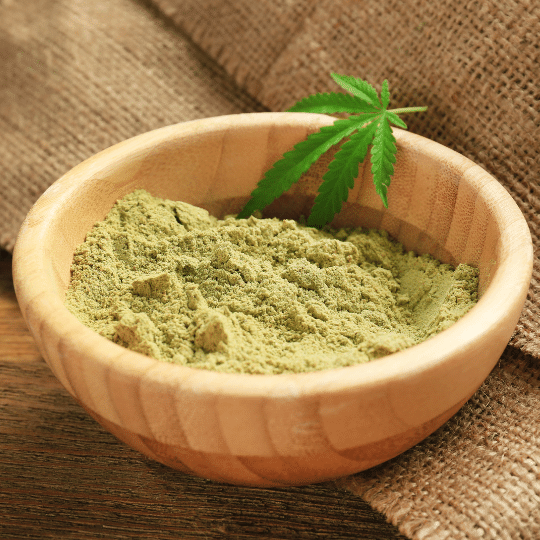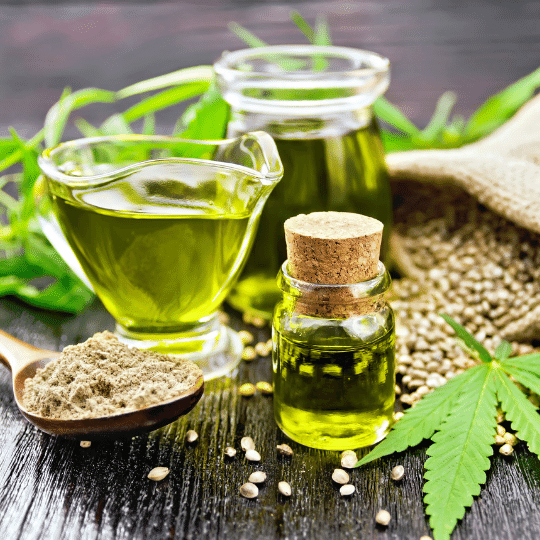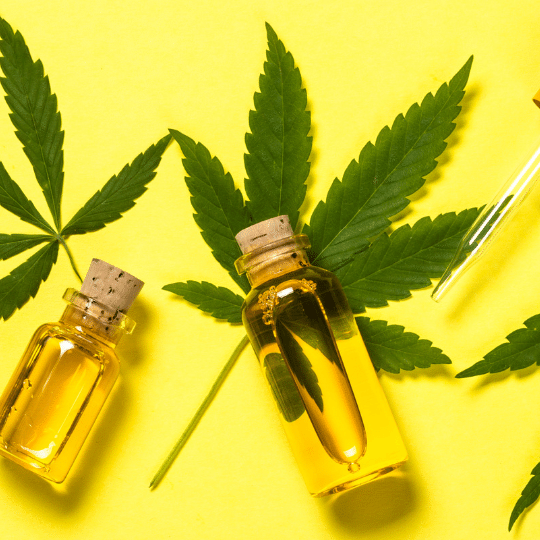
What Are Cannabinoid Isolates?
What Are Cannabinoid Isolates? Cannabinoid isolates are the purest form of specific cannabinoids extracted from the cannabis plant. They are highly concentrated compounds, free from other plant materials, terpenes, and flavonoids. In this article, we will delve into the science behind isolating cannabinoids, their different types, benefits, applications, and safety concerns.
The Science Behind Isolating Cannabinoids
The process of isolating cannabinoids involves several extraction techniques, such as supercritical CO2 extraction, ethanol extraction, or hydrocarbon extraction. These methods extract the desired cannabinoids from the plant, followed by purification and crystallization steps to create a highly concentrated, pure product.
To create a powder isolate, specific conditions of temperature, pressure, and agitation are required. The distillate oil is mixed with pentane, acting as a solvent, and gradually heated while being stirred.
When the temperature drops after reaching a certain point, agitation slows down and causes CBD or THC to crystalize, which can be washed with a cold solvent like pentane to eliminate any undesirable particles. These crystals can then be ground into a powder for use in the desired final product.

Different Types of Cannabinoid Isolates
There are several types of cannabinoid isolates, with each offering unique properties and potential benefits.
CBD Isolate
CBD isolate is the purest form of cannabidiol (CBD), a non-psychoactive compound found in cannabis plants. It offers various therapeutic benefits without producing a "high" effect, making it popular among consumers.
THC Isolate
THC isolate is the purest form of tetrahydrocannabinol (THC), the main psychoactive compound in cannabis. This isolate provides potent effects and is often used for recreational purposes or medical conditions requiring high THC concentrations.
CBG Isolate
Cannabigerol (CBG) isolate is a non-psychoactive cannabinoid with potential anti-inflammatory, antibacterial, and neuroprotective properties. Although research is still in its early stages, CBG isolate shows promise in treating various conditions, including glaucoma.
CBN Isolate
Cannabinol (CBN) isolate is a mildly psychoactive compound that can act as a sedative and help with sleep disorders. It may also have potential analgesic and anti-inflammatory effects.

Benefits and Applications of Cannabinoid Isolates
Cannabinoid isolates offer a wide range of applications, from therapeutic uses to incorporation in wellness products. They can be infused in edibles, topicals, tinctures, and vape oils, providing consumers with various options to experience their benefits. Whether you’re looking to compare the cannabinoids CBD vs. THC or looking to compare a topical CBD product to an edible one, there is much to understand!
How to Use Cannabinoid Isolates
Cannabinoid isolates can be ingested, applied topically, or inhaled, depending on the desired effect and personal preferences.
A. Ingestion
Cannabinoid isolates can be mixed with food, beverages, or taken as capsules. Ingestion offers a discreet and convenient way to consume cannabinoids, with effects typically lasting longer than other methods.
B. Topical Application
Topical application involves mixing the isolate with a carrier oil or lotion and applying it directly to the skin. This method is suitable for targeting localized pain, inflammation, or skin conditions.
C. Inhalation
Inhalation of cannabinoid isolates can be achieved through vaping or dabbing, providing fast-acting and potent effects. This method is popular among those seeking immediate relief from symptoms such as chronic pain, anxiety, or stress.

Safety and Legality of Cannabinoid Isolates
The safety and legality of cannabinoid isolates vary depending on the type of isolate and the country or state in which they are being used. For instance, CBD isolate is generally considered safe and is legal in many countries, including the United States, provided it is derived from hemp containing less than 0.3% THC. If you’re interested, we take a deeper look into CBD legality in this article here.
However, THC isolate may be subject to more stringent regulations due to its psychoactive effects. Always consult local laws and regulations before purchasing or using cannabinoid isolates.
Cannabinoid Isolates: Final Thoughts and Future Prospects
Cannabinoid isolates have emerged as a groundbreaking development in the world of cannabis science and medicine. They allow for a targeted approach to utilizing the therapeutic potential of individual cannabinoids, enabling researchers and consumers alike to explore the benefits of each compound independently. This unique versatility has contributed to the growing interest in cannabinoid isolates as an alternative or supplement to traditional cannabis products.
As scientific research on cannabinoids continues to advance, our understanding of their diverse applications and benefits is likely to expand significantly. This expanding knowledge base is expected to pave the way for novel therapeutic applications and inspire the development of innovative cannabinoid-based products tailored to address specific health conditions and wellness goals. Furthermore, the ongoing research may also uncover previously unknown cannabinoids and their potential therapeutic effects, opening up new avenues for the use of isolates in medical and wellness applications.
Another promising aspect of cannabinoid isolates lies in the potential for personalized medicine. As more information becomes available on how individual cannabinoids interact with the human endocannabinoid system, healthcare professionals may be able to customize cannabinoid isolate treatments based on a patient's unique needs and genetic makeup. This personalized approach could lead to more effective and better-tailored treatment plans for a wide range of conditions.
However, it is crucial to acknowledge that the future of cannabinoid isolates is not without challenges. Regulatory hurdles, varying legal statuses, and the need for more comprehensive clinical trials and research may pose obstacles to the widespread adoption of these isolates. Nevertheless, as our understanding of cannabis science continues to evolve, it is expected that the popularity of cannabinoid isolates will grow in tandem, offering a myriad of opportunities to improve health and well-being for countless individuals.

Cannabinoid Isolates FAQs:
Q- What are cannabinoid isolates?
A- Cannabinoid isolates are the purest form of specific cannabinoids extracted from the cannabis plant, free from other plant materials, terpenes, and flavonoids.
Q- What are the different types of cannabinoid isolates?
A- Some common types of cannabinoid isolates include CBD isolate, THC isolate, CBG isolate, and CBN isolate.
Q- What are the benefits of using cannabinoid isolates?
A- Cannabinoid isolates offer various therapeutic benefits, depending on the type of isolate.
Q- How can cannabinoid isolates be used?
A- Cannabinoid isolates can be ingested, applied topically, or inhaled through methods like vaping or dabbing.
Q- Are cannabinoid isolates safe and legal?
A- The safety and legality of cannabinoid isolates depend on the type of isolate and local laws and regulations. Always consult local laws before purchasing or using cannabinoid isolates.
Q- What is the future of cannabinoid isolates?
A- As research continues to uncover the potential benefits and applications of cannabinoid isolates, their popularity is expected to grow, providing consumers with new ways to experience the therapeutic potential of individual cannabinoids.
DG


